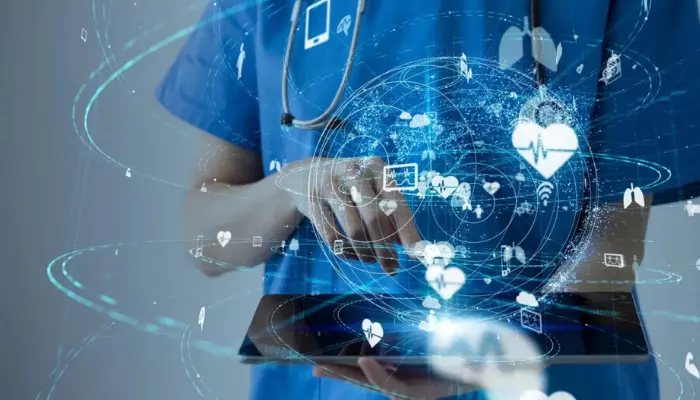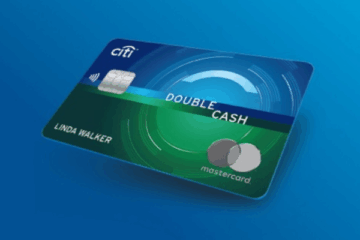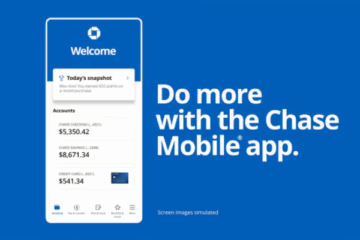Biotechnology and Digital Health: The Future of Healthcare
In recent years, two areas have been gaining increasing prominence when it comes to healthcare: biotechnology and digital health.
Advertising
Together, they are revolutionizing not only the way we diagnose and treat diseases but also how people connect with healthcare professionals and take care of themselves.
Advertising
If you’ve heard of things like genetic testing, video consultations, or devices that measure your blood pressure in real time, know that all of this is part of this universe.
And as advanced as it may seem, these technologies are becoming increasingly accessible, even for those who still think these things are “from the future.”
Advertising
In this article, I’ll explain in simple terms how all of this works and why you should pay attention to this movement.
What Is Biotechnology and Digital Health?
First of all, it’s important to understand what these two areas are that are transforming the way we take care of our health and live.
Although they may seem like complex concepts, biotechnology and digital health have practical impacts that are becoming increasingly present in our daily lives.
- Biotechnology: It is the use of technologies and living organisms, such as cells and DNA, to create solutions that help improve people’s lives. A famous example is modern vaccines, like the mRNA-based COVID-19 vaccine.
- Digital health: It is the use of technological tools, such as apps, artificial intelligence, and telemedicine, to facilitate access to and care for health.
In summary, while biotechnology works to solve biological challenges and create innovative solutions, digital health leverages technology to make care more efficient, accessible, and connected.
Together, these areas are shaping the future of medicine and improving the way we take care of ourselves.
Technological Advances in Biotechnology and Digital Health

The advancement of technology is transforming healthcare into something that, not long ago, seemed like science fiction.
Today, many of these innovations are accessible to anyone, whether through smartphone apps or wearable devices.
The union of biotechnology and digital health has revolutionized both the prevention and treatment of diseases, bringing greater efficiency and practicality to medical care.
Among the main advances, we can highlight:
- Genetic sequencing: Today, it is possible to discover your genetic predispositions to various diseases with a simple test.
- Wearable devices: Smartwatches that monitor heart rates, blood oxygen levels, and even the quality of your sleep.
- Artificial intelligence: Systems that analyze tests, identify patterns, and help doctors make faster and more accurate decisions.
These advances not only make healthcare more efficient but also help prevent problems before they even arise.
Impacts of Biotechnology on Health
Biotechnology is radically changing the way we approach health and the treatment of diseases. In the past, many conditions seemed to have impossible or limited solutions.
Today, with advances in genetic manipulation and the development of innovative drugs and vaccines, we are opening doors to treatments that offer more hope, effectiveness, and personalization.
The impact of this field goes beyond merely treating symptoms; it focuses on identifying the root cause, often at the genetic level, and offering solutions that transform lives. Some remarkable examples include:
- Gene therapies: Correcting DNA flaws to treat previously incurable diseases, such as spinal muscular atrophy.
- Modern vaccines: The development of mRNA-based immunizations, like those for COVID-19, which brought unprecedented speed and efficiency.
- Personalized medicine: Tailoring treatments to the specific needs of each individual, delivering faster and more effective results.
These innovations are creating new possibilities and revolutionizing access to quality treatments, especially for those who previously had few or no therapeutic options.
Digital Health: Technologies Transforming the Healthcare Sector
Digital health is changing the way we take care of ourselves and access medical services. Today, thanks to these innovations, healthcare has become more practical, efficient, and, most importantly, accessible.
From medical consultations conducted via video calls to apps that help manage chronic diseases, technology is breaking down barriers and bringing people closer to personalized and high-quality healthcare.
Furthermore, it plays a crucial role for those living far from major urban centers or facing mobility challenges.
With these tools, it is now possible to access services that were once complicated or time-consuming, bringing more autonomy and convenience to daily life.
- Telemedicine: Video call consultations are quick and accessible, eliminating the need to leave home.
- Health apps: There are apps that help you control your diet, monitor your blood pressure, and even remind you to take your medications.
- Electronic records: Your medical history can be accessed by healthcare professionals anywhere, speeding up diagnoses and treatments.
These tools make healthcare simpler and more accessible, especially for those who live far from hospitals or have difficulty getting around.
Biotechnology and Digital Health in Combating Pandemics
During the COVID-19 pandemic, we witnessed a real \”trial by fire\” for these technologies. Vaccines were developed in record time, while apps helped monitor cases and trace contacts.
These technologies also eased the burden on hospitals, with online consultations and at-home testing. In the future, these solutions will remain essential for preventing and combating new pandemics.
Challenges and Barriers in Development and Implementation
While the advances are impressive, significant challenges still need to be addressed. Issues such as data security, high costs, and ethical dilemmas related to artificial intelligence and genetic manipulation are substantial barriers.
Overcoming these obstacles is crucial to ensure these innovations are accessible and bring real benefits to everyone.
- Data privacy: With so much information being stored digitally, ensuring the security of your data is a major challenge.
- Cost of technologies: These innovations are not always affordable for everyone.
- Ethical concerns: How do we handle decisions based on AI or genetic modifications?
Addressing these issues is essential to ensure these technologies can benefit more people.
The Future of Biotechnology and Digital Health
What does the future hold for biotechnology and digital health? The possibilities are exciting and promise to further transform the healthcare sector.
As these technologies evolve, we can expect more democratic access, with solutions that today seem futuristic becoming everyday realities.
From fully connected hospitals to revolutionary treatments for genetic and chronic diseases, the future points to more integrated, efficient, and accessible care for everyone.
- Increased accessibility: Over time, technologies that are currently expensive should become more affordable and accessible.
- Complete integration: Fully connected hospitals and clinics, with integrated data for faster and more efficient care.
- New treatments: Therapies that seem impossible today could become common, such as curing genetic diseases and treating cancer more effectively.
How These Innovations Impact Patients and Healthcare Professionals
Innovations in biotechnology and digital health are transforming the experience for both patients and healthcare professionals, bringing direct benefits and adaptive challenges.
For Patients:
These technologies enable faster and more accurate diagnoses, ensuring health problems are identified and treated early. Additionally, they allow for more personalized treatments tailored to individual needs, increasing the chances of success.
With digital tools, patients gain more autonomy to monitor their health, prevent diseases, and actively participate in decisions about their care.
For Healthcare Professionals:
The changes are equally impactful. Advanced technologies like artificial intelligence and automated systems provide diagnostic support, enabling more informed and agile decisions.
Moreover, time-consuming administrative and bureaucratic tasks are being reduced, freeing up more time for direct patient care.
However, these innovations also demand constant professional updates, as mastering new tools is essential to providing efficient and high-quality care.
This revolution not only improves the efficiency of care but also strengthens the relationship between doctors and patients, placing technology as an ally at the heart of the healthcare system.
How to Stay Updated on the Topic
Staying informed about biotechnology and digital health is essential to understanding the changes revolutionizing the healthcare sector.
With so many new developments emerging rapidly, here are some practical tips to keep up with the topic:
- Read news from reliable sources: Specialized health and technology websites are great for learning more.
- Attend courses and events: Many are online and free.
- Follow professionals in the field on social media: Doctors, scientists, and influencers in the area share valuable information.
As advanced as these technologies may seem, they are becoming increasingly present in our daily lives.
Understanding how they work and how they can benefit you is essential to making the most of what the future holds. After all, taking care of your health has never been so easy—and smart!





